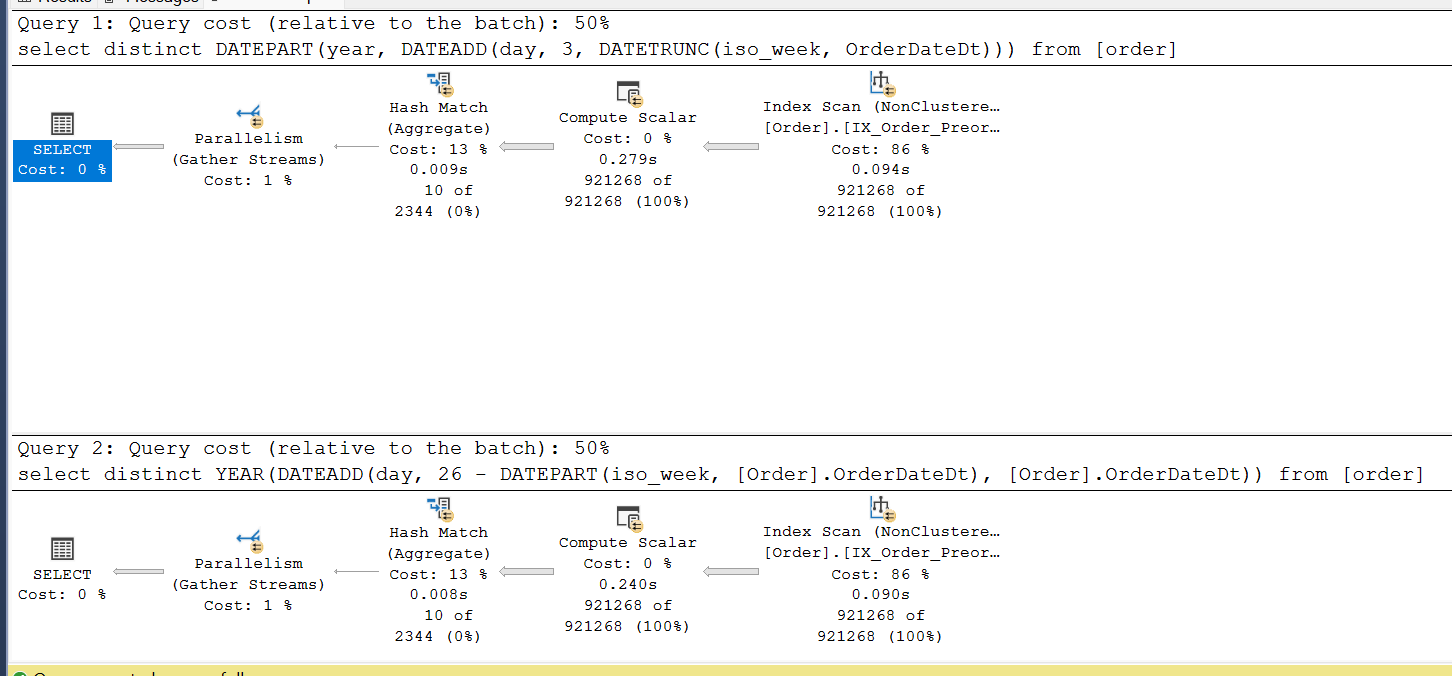I need to calculate the year a week is assigned to. For example the 29th December of 2003 (Monday) was assigned to week one of year 2004 (this is only for europe, I think). You can take a look at this with this code:
SELECT DATEPART(isowk, '20141229');
But now I need an easy way to get the year this week is assigned to. What I currently do is not that elegant:
DECLARE @week int, @year int, @date char(8)
--set @date = '20150101'
set @date = '20141229'
SET @week = cast(datepart(isowk, @date) as int)
if @week = 1
begin
if DATEPART(MONTH, @date) = 12
begin
set @year = DATEPART(year, @date) + 1
end
else
begin
set @year = DATEPART(year, @date)
end
end
select @date "DATE", @week "WEEK", @year "YEAR"
If anybody knew a more elegant way, that would be nice :-)

